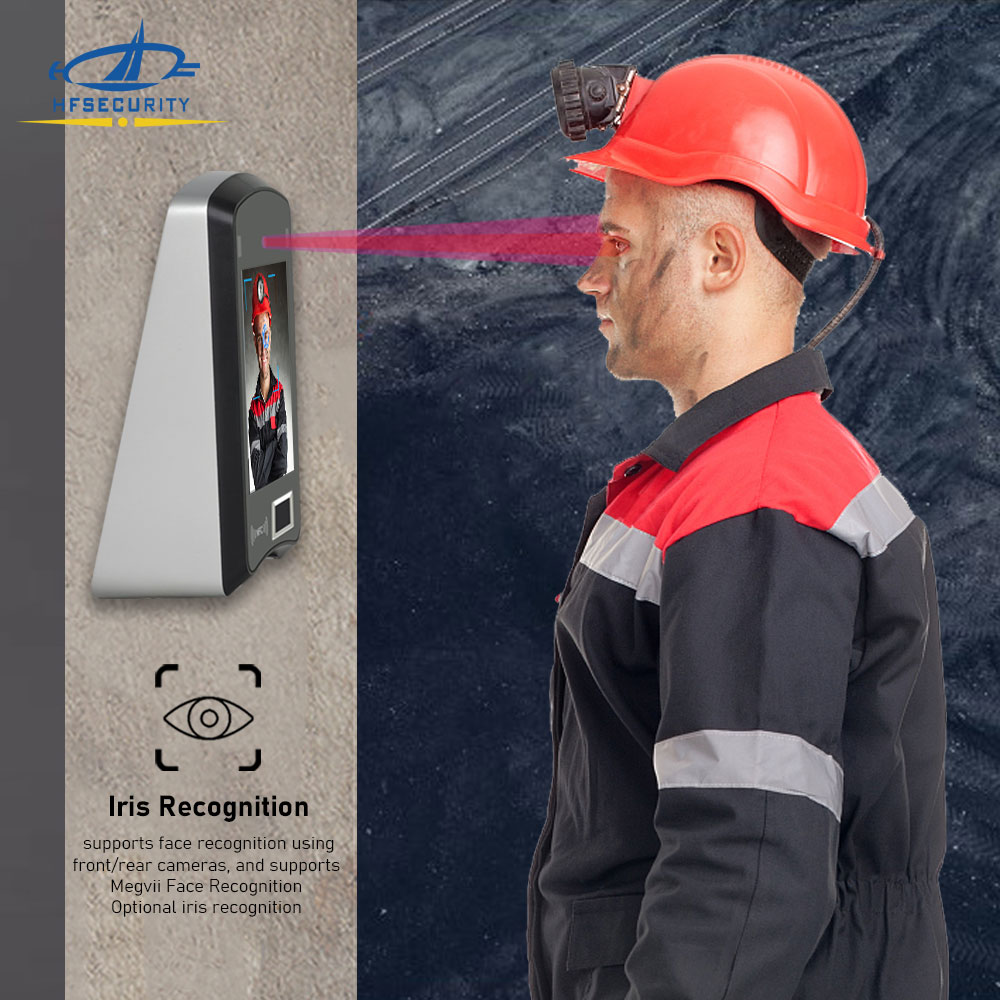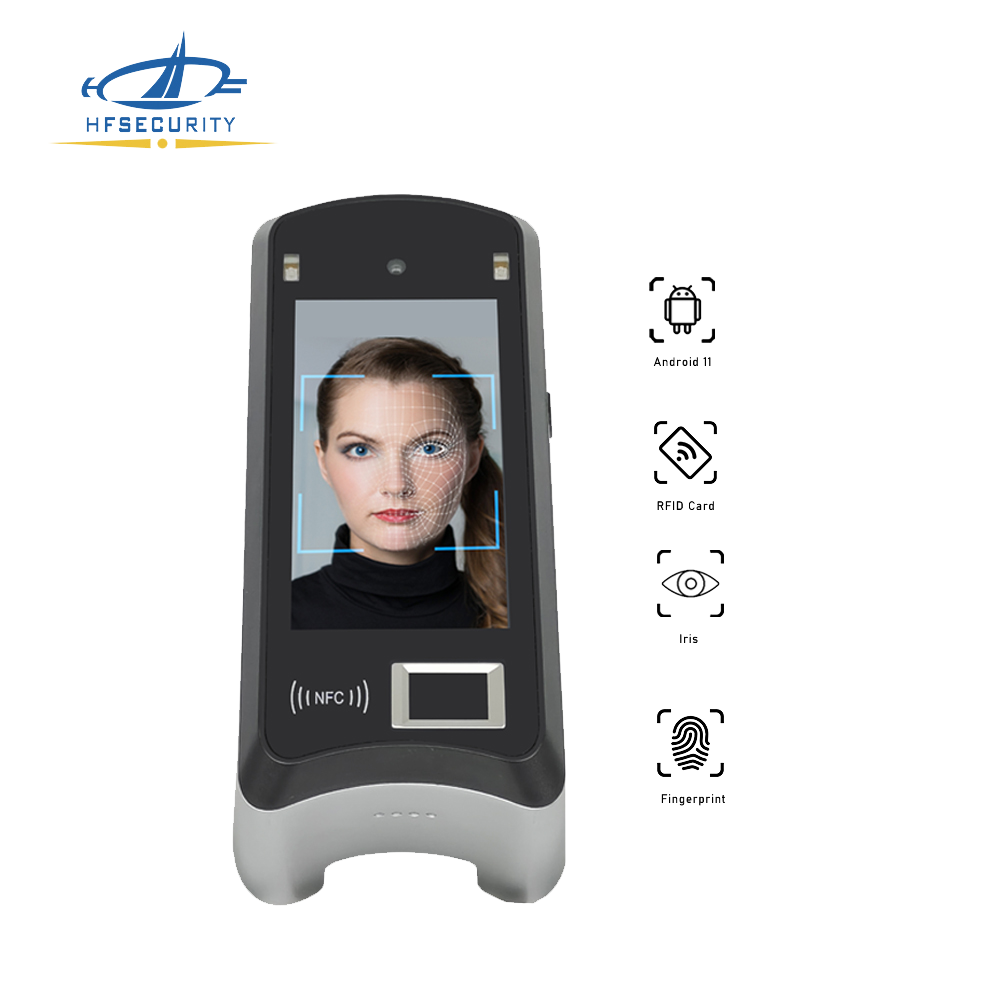What is Iris Scanner Biometric Device
Iris scanner biometric devices complete the verification and identification process by taking an individual’s iris and applying algorithms to set it into a high-resolution image; the use of iris technology is gradually increasing, and iris technology can be applied in secure and environmentally restricted places;
Fast|Security

How an iris scanner works:
1. Capture
2. Localization
3. Feature Extraction
4. Template Creation
The extracted features are converted into a digital template, which is a mathematical representation of the iris pattern. This template is stored in a database for future comparison.
5. Matching
6. Decision
For end users, if it is too complicated, it can also be simply divided into two main processes of iris recognition.
- The first is identity registration: identity registration refers to the recognition device extracting the user’s iris features and adding the extracted feature template to the database of the recognition system.
- The second is identity recognition: identity recognition is to extract the iris feature template of the person to be identified and compare it with the registered iris template in the database to give an acceptance or rejection judgment.
Iris Recognition Product

Iris Device Parameters
- Image Transmission Rate: 1920*1080/30 fps;
Distortion: TV - Distortion<1.0%;
- CRA:<23.58℃;
- Lens Temperature Range: -20℃/+80℃;
- Lens Structure: 2p+2G;
- Focus Distance:27CM
- Depth of filed:32-42cm
- Video output compression format:MJPG/YUY;
- Working wavelength:810nm;
- Dynamic Range:60DB
IRIS Scan Biometric Device Parameter
- OS: Android 11
- 液晶: 5inch 720*1280
- 寸法: 225mm(L)*115mm(W)*11.5mm(H)
- カメラ: 5.0M (RGB Camera); 2.0M (Infrared Camera)
- バッテリー: Support DC 4.3V 3000mAh
- 12V入力: Support
- RFID:Support ISO/IECC1443 Type A&B, 13.56MHz
- GPS: Support
- Gセンサー: Gravity acceleration sensor
- スピーカー: Built-in stereo speaker 8Ω/1.5W
- マイク: Built-in microphone
- タッチパネル:
静電容量パネル、マルチポイントタッチ、G+G – - 保管温度:
5℃〜60℃
- CPU:MT8768, Octa-core 2.3GHZ,2GB
- RAM:2G (Optional 4G or more)
- ROM:16GB (Optional 64G or more)
- OTA:サポート
- CMOS感光チップ:1/2.8sensor
- Maximum resolution:1920(H)x1080(V)
- Sensor Pixel Dimensions:2.9um x 2.9um
- Image transmission rate:1920*1080/30fps
- Distortion:TV歪み<1.0%
- CRA:<23.58°
- Lens temperature range:-20°/+80°
- Lens structure:2P+2G
- Focus distance:37cm
- Depth of field:32〜42CM
- Video output compression format:MJPG/YUY
- Working wavelength:810nm
- Dynamic range:60デシベル
- Sensor:FBI認定指紋センサー(FAP10)
- Image Resolution:508DPI
- Image Area:18.00mm×12.80mm
- Image Size:256*360ピクセル
- Gray Scale:5-bit(256levels)
- Standard:ANSI378/381、ISO19794-2/-4をサポート
- Image Format:WSQ、RAW、jpgなど
- API Calling for 1-to-N Matching:サポート
- Wi-Fi:2.4GHz / 5.0GHz
- Bluetooth:ブルートゥース5.0
- USB :USB-A; マイクロUSB
- POE:サポート
RJ45 LAN :サポート - Door Magnet:サポート
- Doorbell:サポート
Applications of iris scanner biometric device
Iris recognition is used in some U.S. airports for expedited traveler programs and by law enforcement agencies for identity verification.
Qatar uses iris recognition for immigration control and to enhance security at its airports.
関数
出席時間
- 指紋認識
- 顔認識
- NFC recognition
- 虹彩認識
iris scanner access control
- ウィーガンド
- ポエ
- RS485



